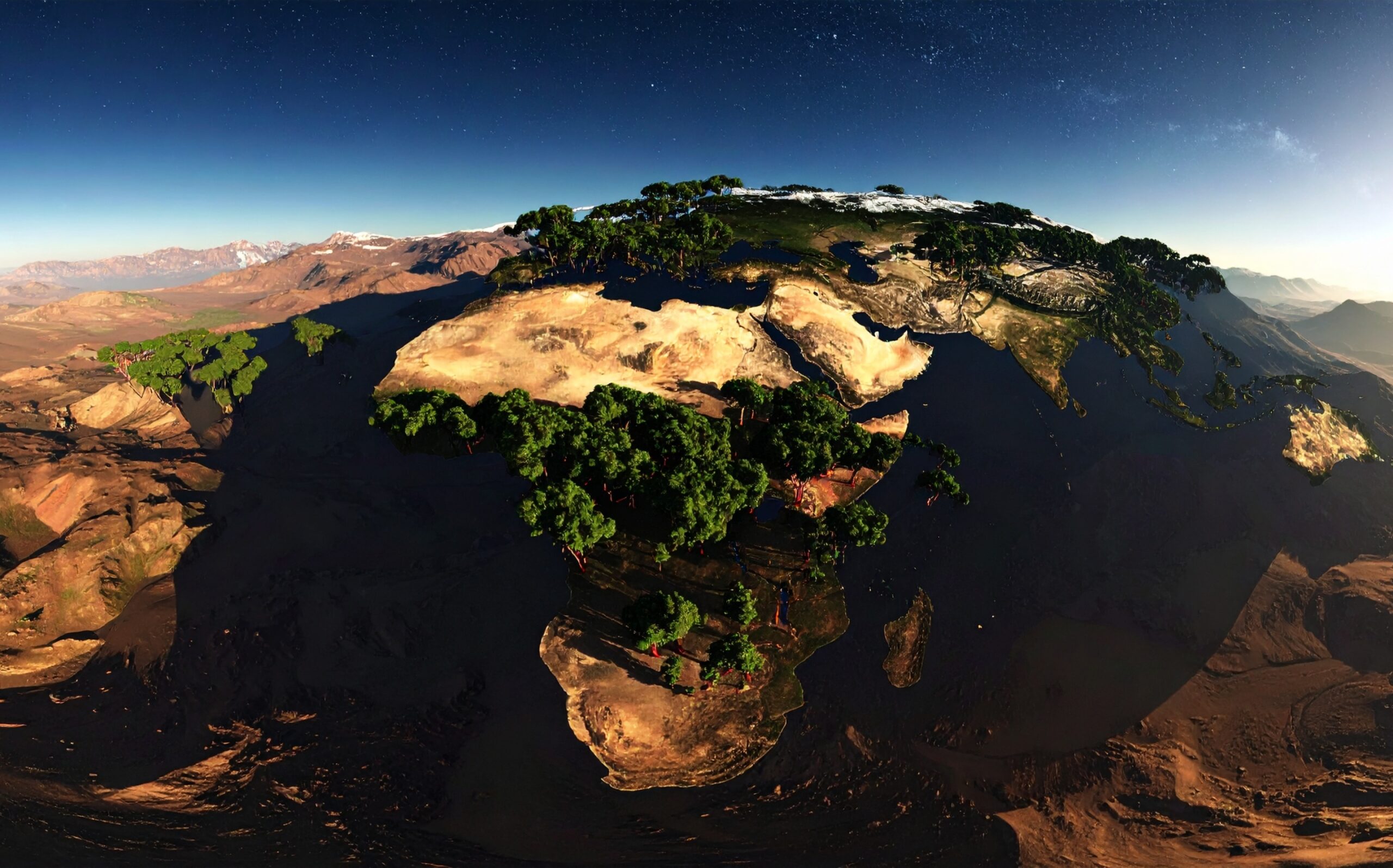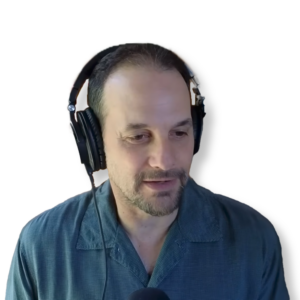
Ep 178 | Andrew Millison
Andrew Millison — Restoring Global Ecology: The Great Green Wall and Large-Scale Permaculture in Action
Description
It’s no secret that massive change is needed to restore our planet’s vital ecosystems. Permaculture offers practices to restore local environments by focusing on creating sustainable agricultural systems that mimic patterns found in nature. But how might permaculture initiatives go beyond agriculture to transform some of our largest-scale problems, such as social cohesion, climate stabilization, and even human migration?
In this conversation, Nate sits down with permaculture educator Andrew Millison to discuss the Great Green Wall project, a massive ecological initiative aimed at combating desertification in the Sahel region of Africa. They explore the causes of the Sahara Desert’s expansion, the simple but impactful permaculture techniques being employed to restore land, and the significant ecological and nutritional benefits resulting from these efforts. This conversation highlights the collaboration between local communities and global organizations, emphasizing permaculture’s potential to transform lives and ecosystems around the world.
How can innovative permaculture techniques aid in helping our most complex ecological challenges? In what ways have land restoration projects reduced conflict between people in resource scarce areas? Furthermore, what kinds of responses – both grassroots and top-down – are needed to implement these practices on a large scale?
About Andrew Millison
Andrew Millison is an innovative educator, storyteller and designer. He founded the Permaculture Design education program at Oregon State University (OSU) in 2009. At OSU Andrew serves as an Education Director and Senior Instructor who offers over 25 years of experience, and a playful approach to regenerative design. Andrew is also a documentary videographer who travels the world documenting epic permaculture projects in places such as India, Egypt, Mexico, Cuba, and throughout the US. You can view his videos and series on his YouTube channel.
In French, we have a motto that says that a simple drawing is often better than a long explanation. Jean-Marc Jancovici Carbone 4 President
That’s very understandable because with left atmosphere thinking, one of the problems is that you see everything as a series of problems that must have solutions. Iain McGilchrist Neuroscientist and Philosopher
We can’t have hundreds and hundreds of real relationships that are healthy because that requires time and effort and full attention and awareness of being in real relationship and conversation with the other human. Nate Hagens Director of ISEOF
This is the crux of the whole problem. Individual parts of nature are more valuable than the biocomplexity of nature. Thomas Crowther Founder Restor
Show Notes & Links to Learn More
Download transcript00:00 – Andrew Millison, University page, YouTube Channel
00:48 – The Great Green Wall, Countries involved
01:05 – Oregon State University Permaculture Design
02:27 – Permaculture, Exploration of principles
03:40 – Millison’s popular Great Green Wall video, His others: 1, 2 (showing long-term effects), & 3
03:50 – Sahara Desert, Saharan Desert expansion by 10%, History as a desert
06:20 – Causes of Desertification, Scramble for Africa
08:40 – The United Nations World Food Programme, Volli Carucci
10:45 – The Sahel
10:50 – Issues with the African Great Green Wall
11:19 – Agroecology, Agroforestry, Ecological Restoration
12:25 – Water Harvesting, Soil Building, Soil Microbiology, Hydrology
14:30 – Relationship between productive land and migration
15:25 – Sudanese civil war, Issues in Mali and Burkina Faso
15:50 – Senegal Great Green Wall successes
16:30 – Subsistence farming, Nomadic herding
17:30 – Water-Harvesting Half Moons, Different styles, Silvopasture system
20:48 – Acacia seyal
21:56 – The Great Green Wall hss improved malnutrition rates
23:26 – Planet Wild, Trees for the Future, Natalie Topa, Danish Refugee Council
26:17 – Relationship between desertification and climate change
27:30 – Niger government’s commitment to restoration, Niger coup
28:01 – Benefits of the Great Green Wall: Biodiversity improvement, Cooling temperature
30:40 – African Great Green Wall origin
32:45 – Water table, Borewell
33:11 – Effects of rainfall in the desert, Erosion
34:01 – Aquifer
34:33 – Sahel rainy season
34:57 – Perennial vs. Annual plants
35:41 – Amazon TGS episodes: Carlos Nobre, André Guimarães
35:46 – Some parts of Amazon Rainforest at risk of becoming a savanna
36:20 – Relationship between Sahara and Amazon
36:49 – Biotic pump, Trees and rain relationship
38:01 – Record rains in Sahel in 2024
39:02 – The complex history between herders and farmers
40:42 – Fertility Rates in Africa and Niger
43:24 – Chad electricity statistics
44:47 – Seawater Agriculture, Halophyte, Millison’s YouTube video
46:25 – Genetically modifying plants to withstand salt
47:20 – Animal-Industrial Complex, Global calorie provision from livestock
50:55 – “Anti-lawn” Movement, Millison’s Kill Your Lawn and Grow Food! video
51:18 – Total area of lawns in the United States
51:28 – The environmental burdens of lawn maintenance
51:50 – History of the lawn, Evolutionary psychology behind our draw to lawns
52:58 – Homeowner association
55:00 – Sheet mulching







